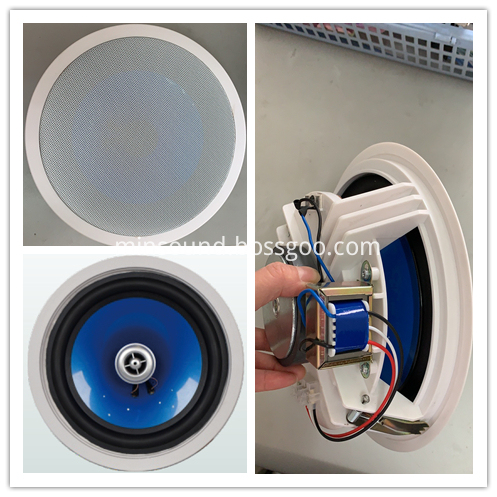The research and development of smart homes are those of big manufacturers and Internet companies, which makes smart homes make people think that this new industry is so much alive that people are very much looking forward to it. Recently, at the OFweek2015 China smart home industry summit held in Shenzhen, the scene is indeed hot, the software developers and hardware suppliers in the industry are gearing up. However, what is the status of smart homes and where do they go? From the point of view of the on-site interviews, it is the current situation of “a very lively circle and a lively look outside the circleâ€. Despite the current fiery concept of smart homes, there is still a long way to go before it actually enters the outbreak period. Professor Yang Jing, chief scientist of the China Mobile Research Institute, introduced that the development of the mobile Internet has extended the Internet of Things, which is divided into car networking, smart grid, smart home and wearable devices. The car networking conference held in Detroit in June this year showed that the penetration rate of U.S. car networking is less than 10%, and even less than 2% of people are on site. He believes that the status quo of smart homes is also the same, with rapid development, but the utilization rate is very low, and manufacturers still have a long way to go to make profits. However, companies are still eager to continue their efforts. Qingdao Haier launched the "U+" mobile phone app in April this year, aiming to establish a unified entrance for smart life. In August, Qingdao Haier signed a strategic cooperation agreement with Huawei to use the advantages of both parties to promote the development of the smart home appliance industry. In addition, Qingdao Haier also subscribed to increase 30 million shares of Sci-Chi shares to promote U+ living strategy. LeTV's operating income grew by more than 50% in the first half of the year, and the sales of Super TV was one of the main reasons. LeTV said it is confident to complete the sales target of 3 million units in the whole year. Among other companies, Xiaomi invests in more than 50 companies in the distribution of smart home ecological chains, and currently has more than 10 products; Tencent released the “QQ IoT Smart Hardware Open Platform†to access hardware devices based on the WeChat public account; Jingdong launched the JD+ program. , And for the hardware entrepreneurs to provide crowdfunding; Alibaba with Ali cloud launched Ali Xiaozhi, full access to smart living areas; the United States is investing in the establishment of M-Smart smart home platform. Wu Fei, director of U+ products at Haier, said that in reality ordinary people are not involved, and the smart family industry does not bring substantial benefits and a good living experience to ordinary people. The industry is still in a chaotic period, with many factors such as poor user experience, lack of uniform standards, and fierce cross-border competition, which hinder the development of the industry. Gong Shiwei, deputy chief engineer of the Guangdong Provincial Institute of Architectural Design, pointed to the features of existing smart homes. The manufacturer did not really consider the needs of users. He believes that the touch panel lacks the sense of practicality of the traditional switch, sensor control brings harassment feelings, the software interface is not suitable for most of the elderly, display, show off the meaning more than practical. To allow users to participate more in order to better development, and now there is some meaning behind closed doors. In addition, high prices also inhibited the needs of some consumers, sweeping robots 1500 yuan, smart audio 500 yuan, smart toilet 2000 yuan, smart light bulb 100 yuan, which allows consumers to think about whether they really need to pay. In addition, there is no uniform industry standard for smart homes, and it is difficult for all products to communicate with each other, which also brings trouble to consumers. Lei Jun had proposed to speed up the development of smart home industry standards during the "two sessions" this year. Lei Jun believes that at present, there are various smart home products, it is difficult to achieve system compatibility, information sharing and interoperability, causing great turmoil to consumers, causing economic losses to enterprises, while causing a waste of national resources, the entire smart home industry Development is extremely unfavorable. According to Liu Fei, general manager of Alibaba Cloud Internet of Things, smart homes are hot on the B side but the C side has not been picked up yet because they have not yet reached the real pain point of the C side. He believes that smart homes not only connect the hardware to the Internet, but also need to be integrated. If you collect all kinds of information in your life, tell us through a knowledge base whether to run? Is it time to eat less oily stuff? This is true intelligence, and this is also the direction that smart home manufacturers should strive. Technology must develop at a rapid pace, and society must also make progress. Only when more things appear and more good things appear, will it be possible for people to choose. Therefore, the development direction of smart home is for the sake of users, and it is only for Hu to really meet the needs of users, in order to make better smart products, user experience is good, then this product is successful.
Hot selling Minsound series ceiling speakers produce clear and loud sound of high-fidelity in a wide coverage.
We have different models of ceiling speakers with different power ,speaker unit and size,
It is ideal choice for home theatre, meeting room, shopping mall, lecture room,classroom and so on.
Ceiling Speaker,Ceiling Loudspeaker,in Ceiling Speaker,in Ceiling Speakers,Ceiling Mount Speakers Taixing Minsheng Electronic Co.,Ltd. , https://www.msloudspeaker.com